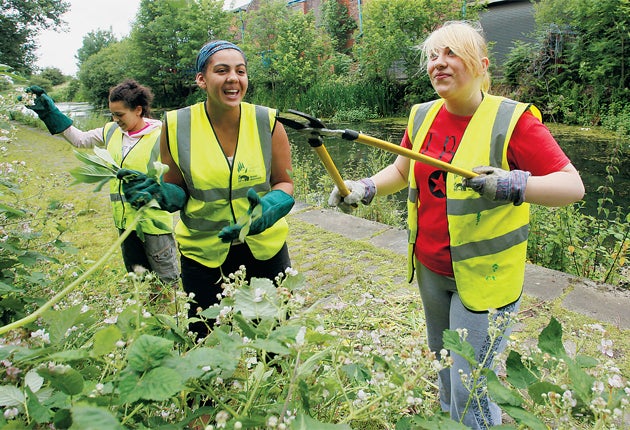Thinking of volunteering on your gap year? Good news, it can help you live longer

Your support helps us to tell the story
From reproductive rights to climate change to Big Tech, The Independent is on the ground when the story is developing. Whether it's investigating the financials of Elon Musk's pro-Trump PAC or producing our latest documentary, 'The A Word', which shines a light on the American women fighting for reproductive rights, we know how important it is to parse out the facts from the messaging.
At such a critical moment in US history, we need reporters on the ground. Your donation allows us to keep sending journalists to speak to both sides of the story.
The Independent is trusted by Americans across the entire political spectrum. And unlike many other quality news outlets, we choose not to lock Americans out of our reporting and analysis with paywalls. We believe quality journalism should be available to everyone, paid for by those who can afford it.
Your support makes all the difference.It’s official, you get what you give, and the notion of good karma might just have some truth in it. Scientists at the University of Exeter have proved that volunteering can help you live longer, with the risk of dying lessened by more than a fifth.
Focusing on the long-term effects of charity work, the study reveals that, while there are no clear links to any physical benefits, volunteers enjoy higher levels of well-being and satisfaction and are less likely to suffer from depression.
Study leader Dr Suzanne Richards explained that more work is needed to establish whether volunteering is behind the mental health improvements shown by the review. “Our systematic review shows that volunteering is associated with improvements in mental health, but more work is needed to establish whether volunteering is actually the cause.
"It is still unclear whether biological and cultural factors and social resources that are often associated with better health and survival are also associated with a willingness to volunteer in the first place. The challenge now is to encourage people from more diverse backgrounds to take up volunteering, and then to measure whether improvements arise for them."
Currently, the proportion of adults volunteering worldwide varies from 22.2 per cent in Europe to 27 per cent in the US and 36 per cent in Australia. Reasons for volunteering also range, with people citing motives such as giving something back to organisations that have helped them, gaining work experience and finding new friends.
Join our commenting forum
Join thought-provoking conversations, follow other Independent readers and see their replies
Comments